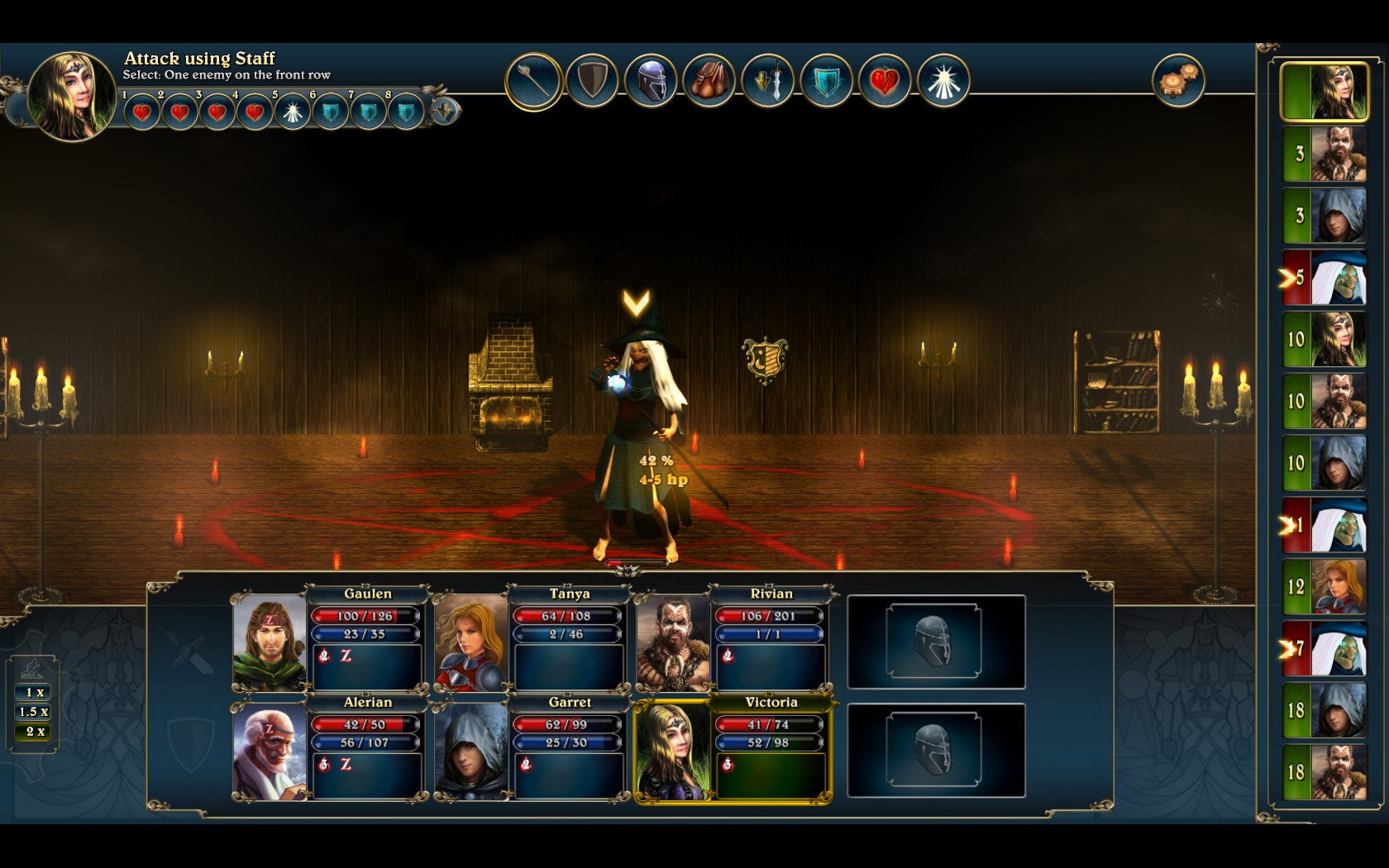
The one defining feature of indie CRPGs is that they often do not have a defining feature. The vast majority of independent developers merely scrape the top layer off a popular, already existing formula and plop it down into their own game. This familiarity of play style helps sell a game that, in other circumstances, wouldn’t gain any traction within the industry. This imitative practice isn’t inherently good or bad, it’s just how things work … and that’s fine.
Lords of Xulima doesn’t shake the boat, either. Like other indie CRPGs, it borrows every single one of its mechanics from its higher budget forebears, and shows no shame in doing so. Taking the overworld and exploration system seen in BioWare’s Infinity Engine games, and combining it with the combat of Wizardry and the character creation of Might & Magic, Lords of Xulima doesn’t exactly scream originality.
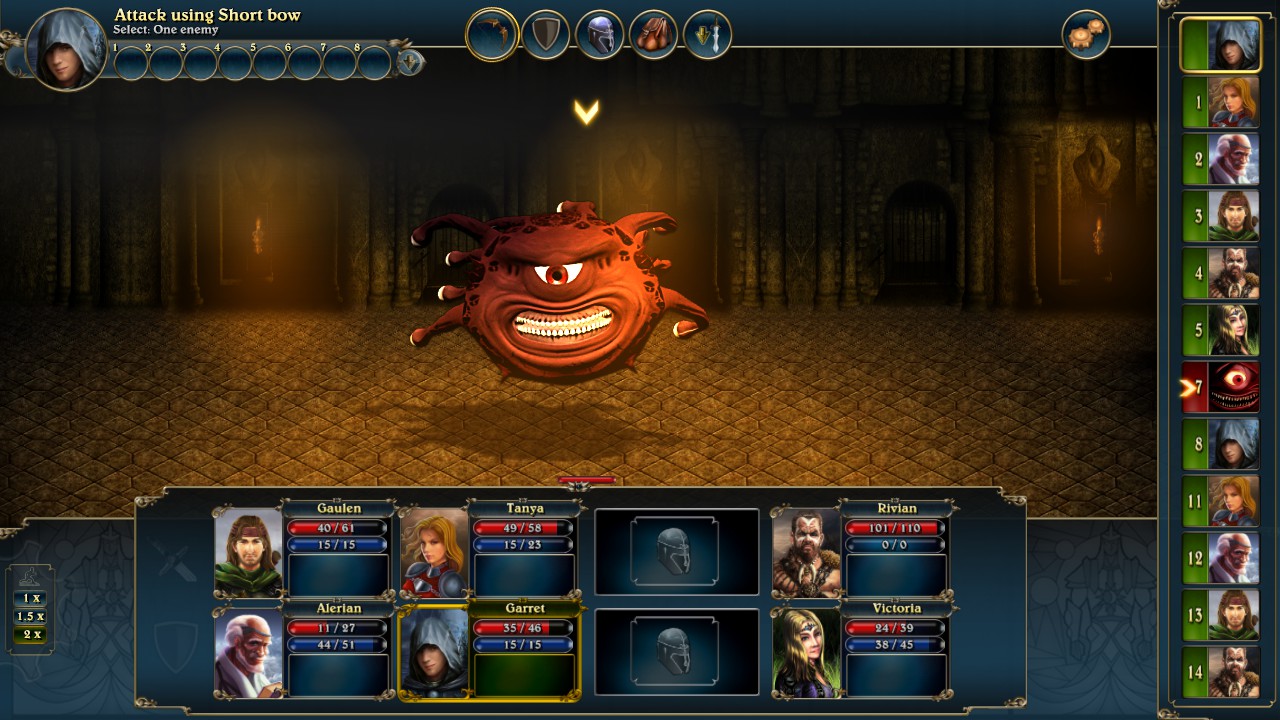
Yet, even with the game being a carbon copy of several other RPG stalwarts, Lords of Xulima works. It does more than work—it actually excels as a CRPG regardless of its indie status. Granted, it isn’t the best-looking game, but it certainly is one of the most entertaining.
A large part of this fun comes from the fact that Lords of Xulima adds a few clever little wrinkles in its shamelessly duplicated systems that serve to freshen up what would otherwise be a stale formula. Most overt amongst these alterations is the way the combat is handled.
In a battle system reminiscent of Wizardry, you line your six characters up in a formation best suited to activating their individual skills, and trade turns with the enemy until one side falls. While not inelegant, it’s not revolutionary—that is, until you dig a little deeper and notice what they’ve added to it.
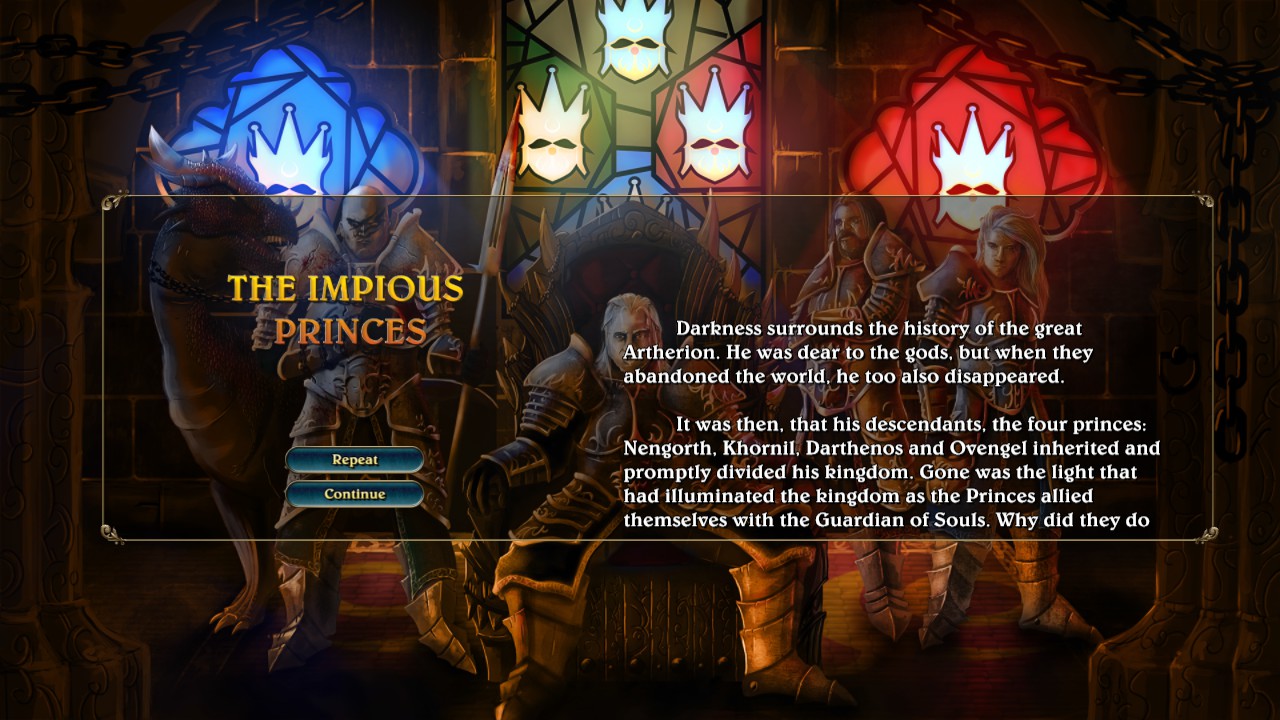
One very interesting little feature the developers have combined with their wizardry-esque battle system is the idea of finite enemy mobs. While most classic CRPGs would throw monsters at you until you pass out from button-clicking exhaustion, Lords of Xulima has a set amount of adversaries in each area and rewards you for exterminating them all. Although you aren’t required to sit around and clear out every randomly spawned baddie in the game, you can gain quite a few levels by simply sticking around finished dungeons and waiting for that last group to finally die off. The bonus the game grants you for doing this is usually triple that of an average mob, and goes a long way towards evening out what is an already rough game.
That roughness is in the fact that Lords of Xulima is a game where you miss your enemy about as much as you make contact with them. Similar to Blackguards, you have to be a patient RPG’er to deal with the constant whiffing your party members do. Thankfully, the combat itself flows very quickly, and the annoying weapon fumbling happens to the enemy as much as it happens to your own party. Some complain about the frequency of the missing blows, but it never felt like it made combat tedious.
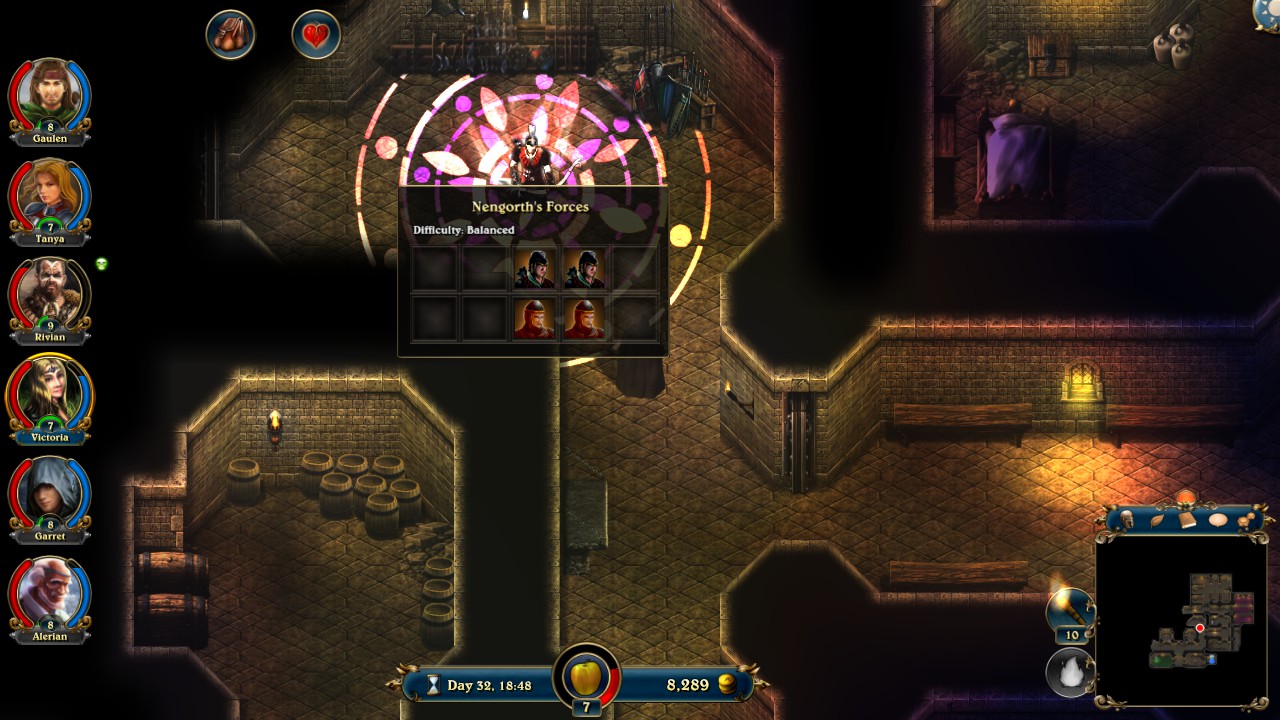
If combat is a fine-tuned offshoot of Wizardry, then the character creation and progression systems are a slimmed down version of Might & Magic’s old formula. Like Jon van Caneghem’s classic RPG series, characters’ abilities in Lords of Xulima are represented by skills that can be increased during level-up, and require different amounts of points to increase depending on the user’s proficiency. As with the combat, this isn’t some grandiose feature meant to set a new bar in the genre, but it works well enough to not have to be.
There are a tremendous amount of skills in Lords of Xulima, with more slowly unlocking over the course of the game. Normally, this would be a downside, since Xulima only grants you four points to distribute per level, but another little addition keeps this from being problematic: with a small investment, you can go to a trainer (yet another Might & Magic staple) and basically pay gold for extra skill points. These points will appear after you next level and, much like the finite enemy feature that rewards you for grinding, this feature helps alleviate what is otherwise a very difficult game.
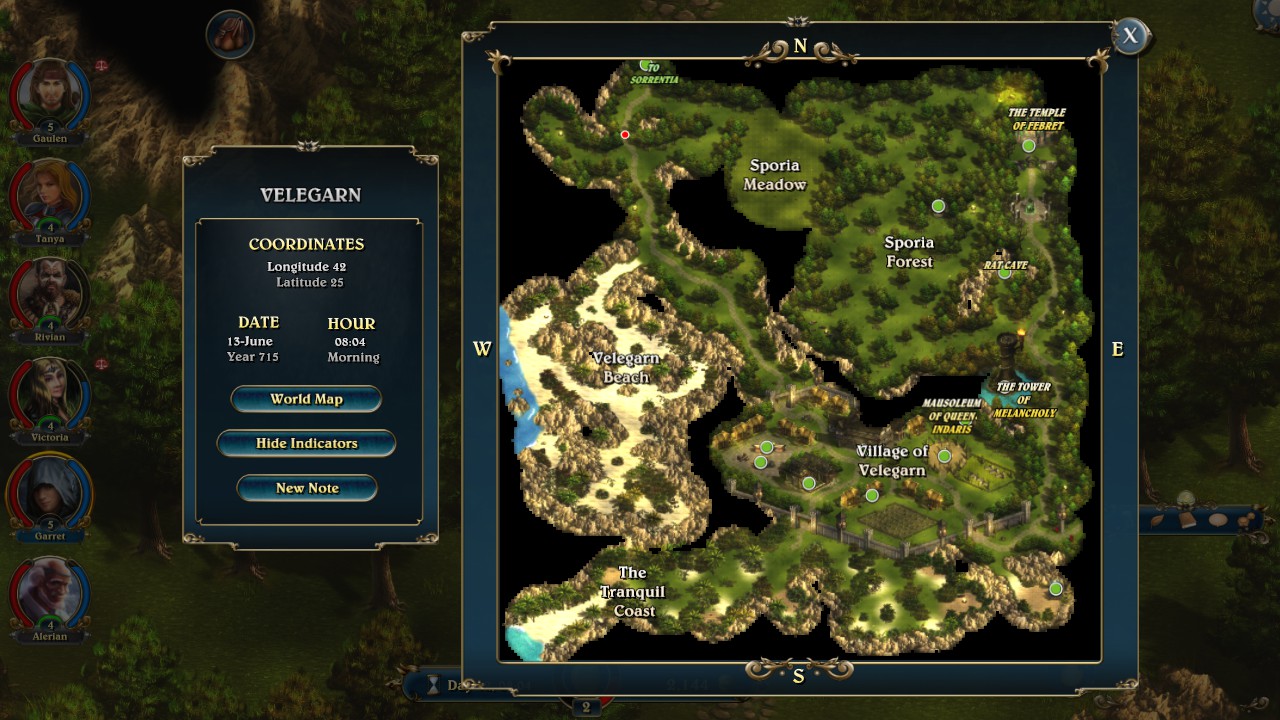
Even the way you progress is similar to Might & Magic, since you are very rarely told where to go next and are encouraged to free-roam around the world until you find something you can kill. The downside to this is that you often bump into enemies that you can’t handle and have to wander the map until you find a conquerable dungeon, but for CRPG veterans who remember when that was a positive and not a negative aspect of the genre, this will feel like home.
You can tell that the developer truly loved this game, since it shows in the sheer amount of content it contains. With a long (40+) hour quest and plenty of optional missions to engage in, you’re probably getting far more for the sub-$20 price tag of this game than most full priced, AAA games claim to provide. You might not get fully voiced NPCs or state-of-the-art graphics, but the rest of the required boxes a good game needs to tick are present in Lords of Xulima.
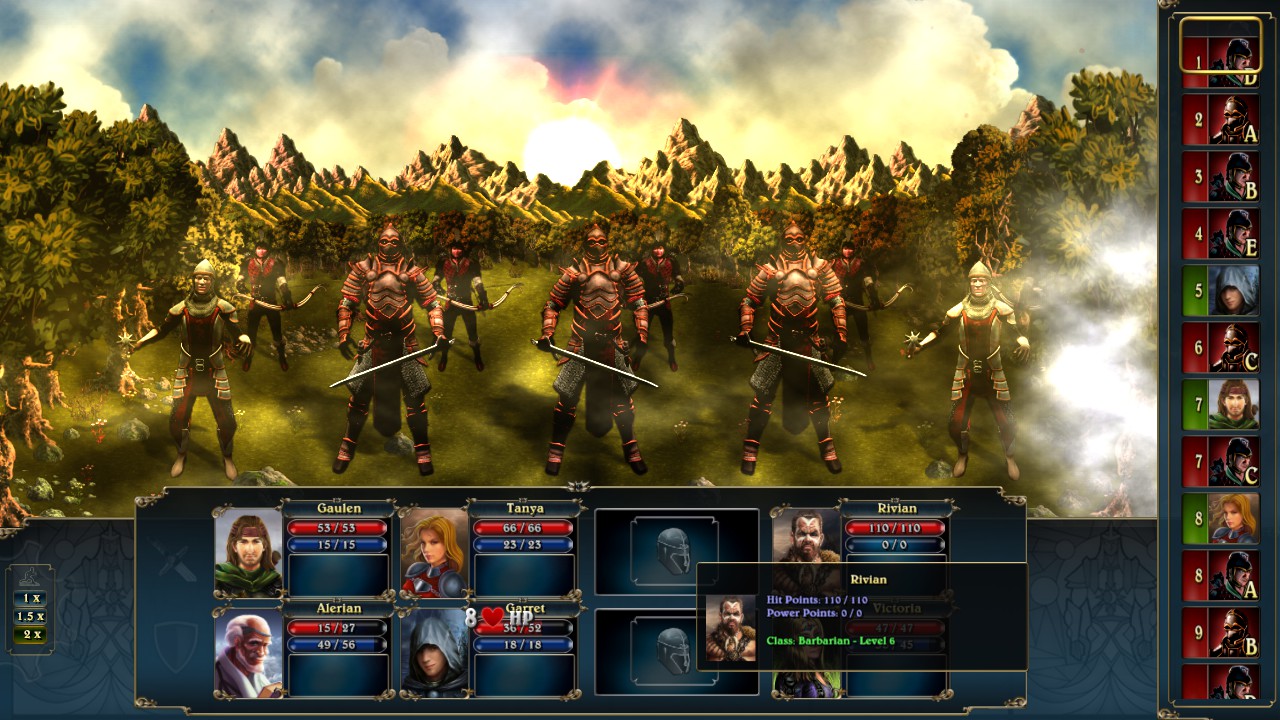
Lords of Xulima is a fairly solid CRPG. Even the animations, one of which (The Riddle Imp) has spawned a community meme, are shockingly well done. The music, the dialog, the “not too big, not too small” maps—it all comes together to make what is the best new indie CRPG I’ve played since the first book of the Eschalon series—at least, provided you don’t mind slightly demanding combat and a lack of quest markers.
This game surprised me, since I initially did not like it and passed it off as “just another genre clone” three hours in. After several patches, an exit from early access, and a long time away from the game to forget much of what I hated, I re-entered it and found a much better and fully-formed CRPG.
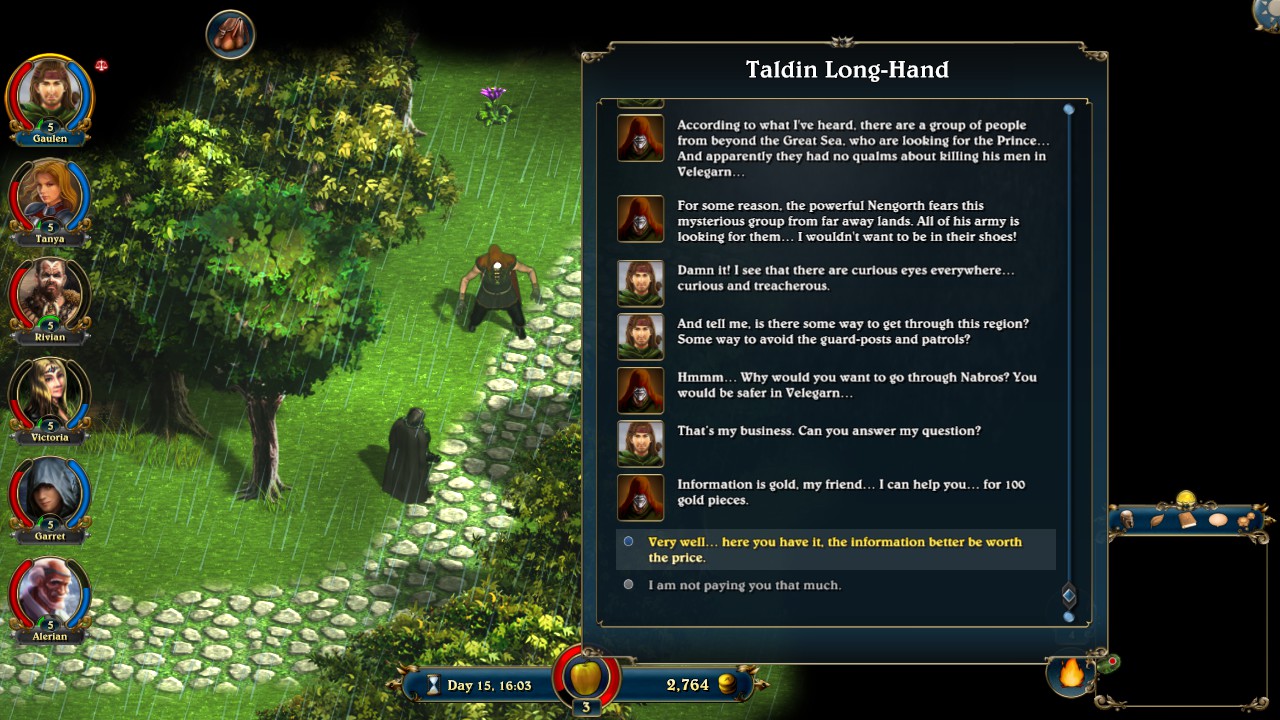
I highly recommend Lords of Xulima to any Wizardry or Might & Magic fans who feel that their desires haven’t been met in any recent major AAA releases, and who want a content-rich CRPG that rewards anal retentiveness and encourages extreme min-maxing. That’s a very small minority of this hobby’s fans, but that just makes what Xulima offers all the more special.
Lords of Xulima was reviewed on PC using a digital copy provided by Numantian Games. You can find additional information about Niche Gamer’s review/ethics policy here.
The Verdict: 9/10
The Good:
- Addictive, sharply designed combat system
- Long quest, lots of content to wade through
- Never feels tedious, always challenging
- Excellent writing and dialog
- Very polished, great animationss and GUI
The Bad:
- Music could be a bit more varied
- Sometimes you can’t figure out where to go next